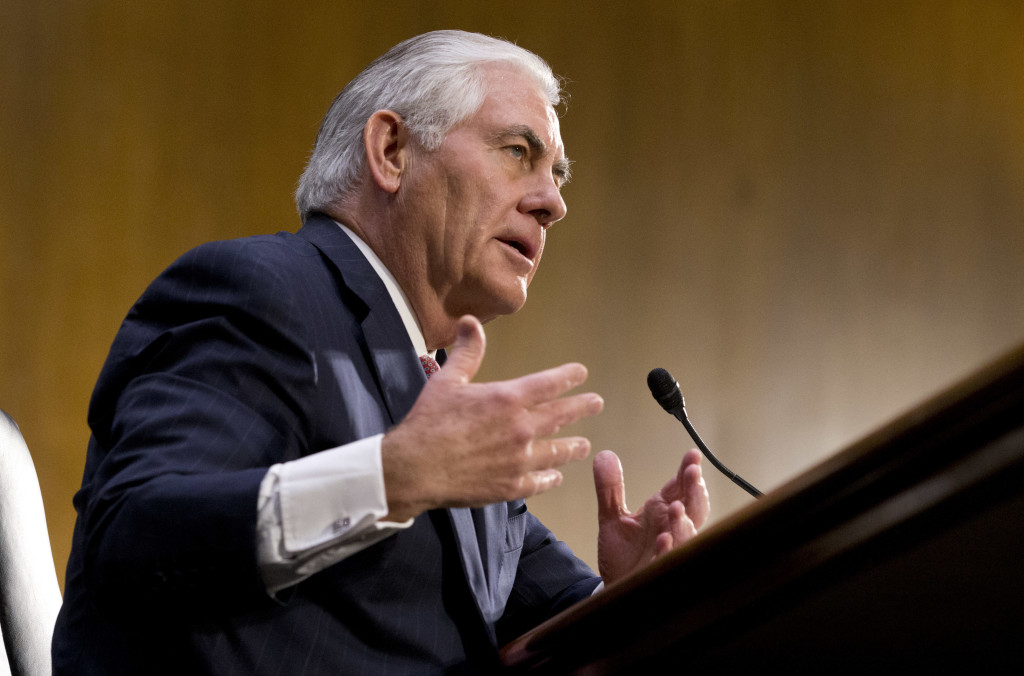
Secretary of State-designate Rex Tillerson gestures while testifying on Capitol Hill in Washington, Wednesday, Jan. 11, 2017, at his confirmation hearing before the Senate Foreign Relations Committee. AP
LOS ANGELES—US Secretary of State nominee Rex Tillerson endured tough questioning about human rights—including extrajudicial killings (EJKs) in the Philippines—during his confirmation hearing in Washington on Wednesday (Thursday in Manila).
Sen. Marco Rubio grilled Tillerson, the outgoing ExxonMobil CEO nominated by Donald Trump to be the US secretary of state, about his views on reported human rights violations in Russia, China, Saudi Arabia and the Philippines.
Rubio asked Tillerson: “Since President Rodrigo Duterte took oath last June, The Los Angeles Times reports that roughly over 6,200 people have been killed in the Philippines by police and vigilantes in alleged drug raids. In your view, is it the right way to conduct an antidrug campaign?”
In response, Tillerson said the United States and the Philippines had a longstanding friendship, and that it was important to keep that in perspective when engaging with the Philippines.
“They have been an ally. We have to ensure that they stay an ally,” he said.
Rubio replied: “That’s correct, Mr. Tillerson, but my question is about the 6,200 that have been killed in these alleged drug raids. Do you believe that it is an appropriate way to conduct that operation, or do you believe that it is something that’s conducive to human rights violations (and) that we should be concerned about?”
Shortly after the hearing, Amnesty International USA criticized Tillerson for not calling out governments, including the Duterte administration, for human rights violations.
“After a day of questioning, Tillerson’s commitment to human rights in the US and abroad is in serious question,” Amnesty International USA executive director Margaret Huang said in a statement.
“While he confirmed that US foreign policy should include the prioritization of human rights, he refused to acknowledge human rights abuses by known and long-recognized violators,” she added.